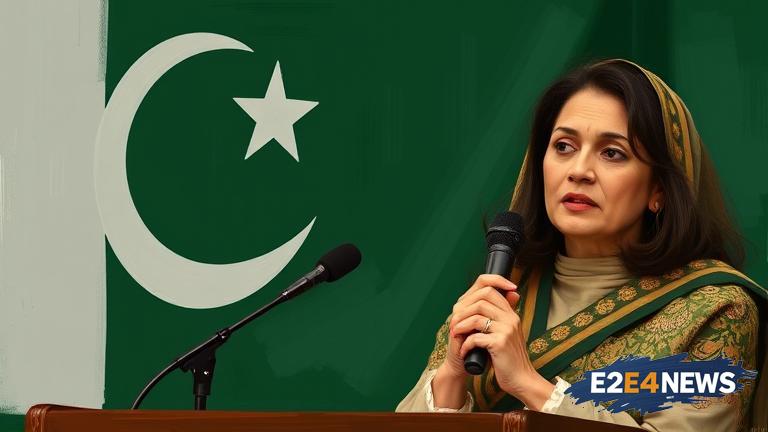Pakistan’s Defense Minister, Khawaja Muhammad Asif, has recently found himself at the center of controversy surrounding his remarks on Aafia Siddiqui, a Pakistani neuroscientist who is currently serving an 86-year prison sentence in the United States. The minister claimed that his remarks were taken out of context, sparking a heated debate in the country. Aafia Siddiqui was convicted of attempted murder and assault in 2010, and her case has been a point of contention between Pakistan and the US. The Pakistani government has long maintained that Siddiqui is innocent and has been wrongly accused. The Defense Minister’s remarks were seen as a departure from the government’s official stance on the issue. Asif stated that his words were twisted and misrepresented by the media, and that he remains committed to bringing Siddiqui back to Pakistan. The controversy surrounding Siddiqui’s case has been ongoing for years, with many in Pakistan believing that she is a victim of US injustice. The Pakistani government has repeatedly called for her release, but so far, their efforts have been unsuccessful. The US has maintained that Siddiqui was fairly tried and convicted, and that her sentence is justified. The case has also sparked concerns about the treatment of Muslim prisoners in the US, with many arguing that Siddiqui has been subjected to unfair treatment. The Pakistani government has faced criticism for its handling of the case, with some arguing that they have not done enough to secure Siddiqui’s release. The Defense Minister’s remarks have added fuel to the fire, with many calling for him to clarify his position. Asif has since reiterated his commitment to bringing Siddiqui back to Pakistan, but the controversy surrounding his remarks continues to simmer. The case has also highlighted the complexities of the Pakistan-US relationship, with many in Pakistan viewing the US as an unreliable partner. The Pakistani government has long maintained that it values its relationship with the US, but the Siddiqui case has put a strain on ties between the two countries. The US has maintained that it is committed to upholding the rule of law, and that Siddiqui’s case is a matter for the US justice system. The controversy surrounding the Defense Minister’s remarks has also sparked a wider debate about the role of the media in shaping public opinion. Many have argued that the media has a responsibility to report accurately and fairly, and that the twisting of Asif’s remarks is a clear example of irresponsible journalism. The Pakistani government has faced criticism for its handling of the media, with some arguing that it has not done enough to promote a free and independent press. The case has also highlighted the importance of context in reporting, with many arguing that the media has a responsibility to provide accurate and nuanced reporting. The controversy surrounding the Defense Minister’s remarks is likely to continue, with many calling for greater clarity and transparency from the government. The Pakistani government has faced criticism for its handling of the case, and the controversy surrounding Asif’s remarks has added to the sense of uncertainty and confusion. The case has also sparked concerns about the impact of the media on public opinion, with many arguing that the media has the power to shape and influence public discourse. The Pakistani government has faced criticism for its handling of the media, and the controversy surrounding the Defense Minister’s remarks has highlighted the need for greater transparency and accountability. The case is likely to continue to be a point of contention between Pakistan and the US, with many in Pakistan viewing it as a symbol of US injustice. The Pakistani government has long maintained that it is committed to upholding the rights of its citizens, and the Siddiqui case has highlighted the need for greater cooperation and understanding between Pakistan and the US.
Tue. Nov 4th, 2025
